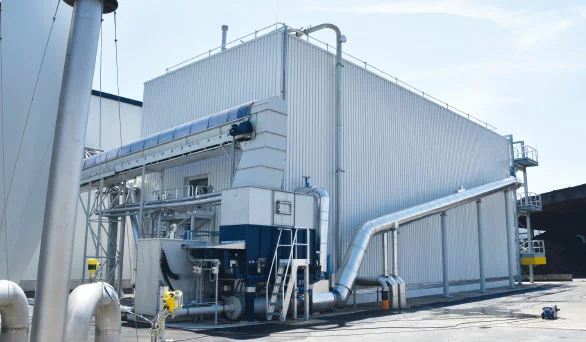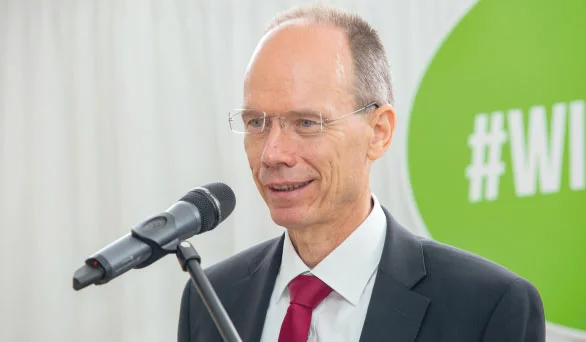Councils expect more than one recycling process
An ever-growing number of local councils are insisting that the separately collected organic waste in their regions should not only be sent for composting but processed in a digester as well. This allows the material to be used to produce biogas as well as compost, making an important contribution towards the country’s goal of switching from fossil to renewable fuels. A new co-digestion plant was commissioned in Bohmte at the beginning of July that will serve North Rhine-Westphalia (NRW), Lower Saxony and the north of Germany and make the very most of the potential of organic waste.
Facility officially opened in July
Kompostierungsgesellschaft Region Osnabrück mbH or K.R.O., a joint venture involving REMONDIS Nord GmbH, opened up a new organic waste processing facility north-east of Osnabrück in July. Located on the border between the states of North Rhine-Westphalia and Lower Saxony, this new plant uses state-of-the-art technology to recycle organic waste from a number of regions including the District of Osnabrück and the cities of Osnabrück and Bremen. All in all, it has the capacity to process 120,000 tonnes of organic waste and green waste every year. Wolfgang Schöning, managing director of K.R.O, emphasised just how important the new facility is and not just for the immediate region. He explained: “Thanks to our cutting-edge, environmentally sound technology, we are in a position to handle large volumes of organic material from the District of Osnabrück and the surrounding regions in Lower Saxony and North Rhine-Westphalia as well as from areas in the north of Germany.”

Co-digestion ‘kills two birds with one stone’: carbon-neutral energy is generated from the biogas and the digestate is a highly effective soil improver
A new digester added
The composting plant, which was renovated and upgraded following a fire in 2014, now has a new digester and an additional area for recycling green waste. The methane gas (which is 25 times more damaging to the climate than CO2) can be removed and used to generate electricity. It is, therefore, increasing the amount of renewable energy produced in the country and helping Germany to reach its climate targets. Managing director, Arne Tiedemann, underlined a further advantage offered by the facility: “Our top quality compost allows farmers and landscaping firms to run a more sustainable business as this material can store up to five times more water than soil without compost. And this is particularly important at times like this when the weather is too dry.”

During his speech at the opening of the facility, Dr Michael Lübbersmann, Head of the District of Osnabrück, praised the future-proof recycling system saying that it will play an important role across the whole of the region and beyond
Image credits: images 1, 2, 3: REMONDIS












